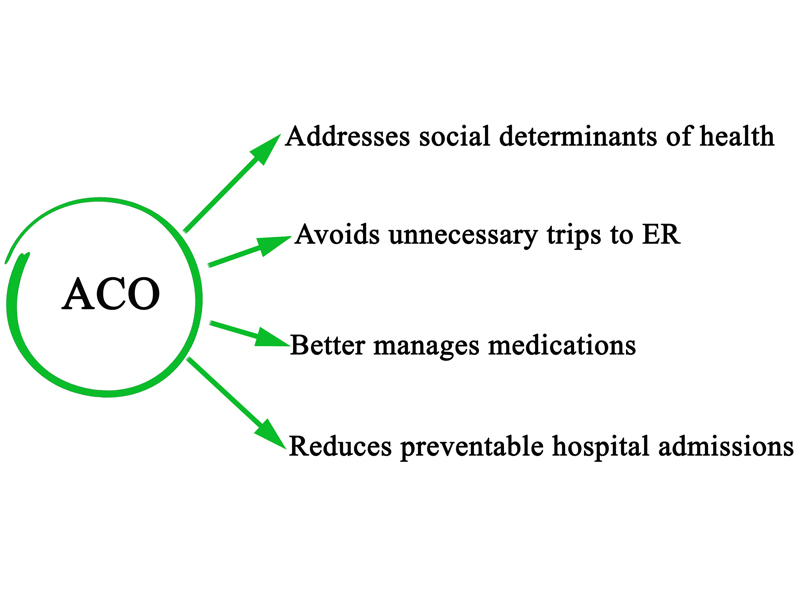AAFP, Other Groups Tout Bill to Strengthen ACOs, APMs
Value in Health Care Act Would Build on COVID-19 Lessons Learned
July 28, 2021, 12:45 p.m. News Staff ― The AAFP has joined with more than a dozen other medical professional and health care organizations to thank a bipartisan group of Congress members for their work “to ensure that value-based health care continues to serve Medicare patients by embracing higher value and lower cost.”

In a July 20 letter to Reps. Peter Welch, D-Vt.; Suzan DelBene, D-Wash.; Darin LaHood, R-Ill.; and Brad Wenstrup, R-Ohio, the groups praise the newly reintroduced Value in Health Care Act, which aims to bolster Medicare’s alternative payment models and accountable care organizations and ensure their ongoing success.
The bill comes at a key moment, the groups contend, pointing to figures compiled by the Health Care Payment Learning & Action Network. “With estimates showing almost 40% of health care dollars are tied to value-based payment and goals to increase that (percentage) moving forward, the value-based care movement is at a critical juncture,” says the letter.
“The reforms in this legislation will further strengthen ACOs and APMs and ensure their continued success,” it adds.
The Academy’s co-signatories on the July 20 letter include the AMA and American College of Physicians. They and several of the other groups represented in the current letter also signed on to correspondence sent last July about a similar bill introduced during the 116th Congress.
A major provision of the current bill seeks to encourage participation in the Medicare Shared Savings Program by
- increasing shared savings rates for ACOs participating in various levels of the basic track;
- revising risk-adjustment methodology to enhance positive adjustments in prospective hierarchical category code risk scores and rein in negative adjustments to HCC risk scores;
- eliminating certain factors blocking participation in the program, including dropping requirements that ACOs participate in two-sided risk models unless and until they elect to do so; and
- outlining changes to the methodology for calculating benchmark expenditures to enhance equity and accuracy.
“We are pleased that the bill provides appropriate shared savings rates, modifies risk adjustment methodologies, removes barriers to participation, ensures fair and accurate benchmarks, and provides educational and technical support for ACOs,” says the groups’ letter. “These reforms will ensure that value-based care models continue to be viable for physician and hospital participants.”
Other provisions laid out in the legislative proposal
- establish a program to provide educational assistance and technical support to assist eligible ACOs in meeting program-associated start-up and ongoing operational costs;
- extend 5% APM incentive payments for an additional six years and modify other APM participation and threshold requirements;
- call on HHS to study and report on the issues related to Medicare APM overlap; and
- report to Congress on racial disparities and health outcomes among Medicare beneficiaries receiving care from physicians in APMs compared with those being cared for by physicians in a traditional fee-for-service model.
“The policies in this bipartisan bill are more important than ever given lessons learned about our nation’s health care system as we emerge from the COVID-19 pandemic,” the letter notes, pointing out that ACOs and other APM participants have been steadfast in their support for physicians and other health care professionals, as well as patients, throughout the pandemic.
“As part of their commitment to value-based care, ACOs and APM participants were already utilizing many of the tools which have been key to managing the COVID-19 crisis — such as care coordinators, remote monitoring, data analysis and aggregation, and patient tracking,” says the letter. “They were able to quickly and effectively deploy these same resources to manage patient populations throughout the pandemic.”
In addition, the groups observe, given the disproportionate impact of COVID-19 on Black, Latino and other marginalized communities, the call for research to examine the impact of value-based care on health equity that is included in the current proposal is particularly timely.
“This bill is a comprehensive approach that will strengthen our country’s value-based care program and ensure high-quality, lower cost care for our nation’s patients,” the groups conclude.